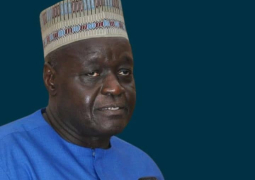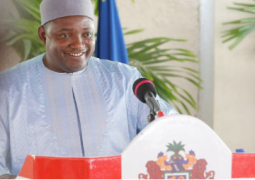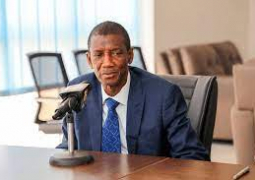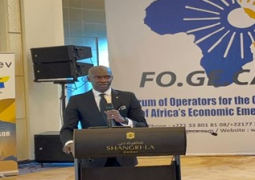I was in The Gambia recently, on a short family visit. With the Banjul-Barra ferry services not functional at the time, due to the reparations of the ramps, on my way going, from Dakar, where I am based, I travelled via Farafenni and Soma. I must say that the Senegambia Bridge is a great development that we ought to be proud of. The government just needs to upgrade the road from Farafenni to the Bridge, which is in a really poor state.
Travelling back to Dakar with a brother of mine, pressed with time, we decided to take what many people called the Gaali Kung (meaning the ‘Boats of Kung’; Kung being another name for Barra) to cross from Banjul to Barra and hire a vehicle from there, so as to avoid going all the way to Soma and across the Senegambia Bridge.
And this is where we got confronted with the really shocking, and actually quite shameful reality that no government has dealt with in 55 years of independence: the use of old fashioned boats (theGaali Kung) to carry people and goods between Banjul and Barra. To get on/off the boats, one has to be carried by a baranyini. Bara nyinis, for those who may not know, are able-bodied young men who carry goods. They also carry people on their shoulders and carry their belongings in and out of the boats at both the Banjul end and the Barra end of the crossing.
When the ferries are running normally, taking the boats is an option that one may or may not take, and these days, few people take them when the ferries are running normally. But when the ferries are not running, as was the case during the whole time when the ramps were being repaired, there is no other option for anybody who wants to cross over to Banjul from Barra, or leave Banjul for Barra: the Gaali Kung boats are the only means of transport.
At the Banjul end, there is a makeshift wharf that shakes as you walk on it, but it does allow travelers to get on the boats without having to be carried on the shoulders of baranyinis. However, even here, to board the boats many people still have to be carried on the shoulders of baranyinis, simply because the makeshift wharf is so small that it gets a bit too crowded sometimes, or because some boats dock a bit far off. At the Barra end, there is no wharf at all, not even a makeshift one. So, all travelers and their personal belongings have to be carried by baranyinis.
This means that, during all the time when the Banjul ferrieswere not working, cars going from Banjul and the Kombos to the North Bank Region (NBR) first had to go all the way to Soma and across the Senegambia Bridge, to Farafenni, which is roughly 200km away from Banjul. People travelling by car from any village or town in NBR to Banjul for business, medical, or other reasons also had to do the reverse: first go to Farafenni, cross the Senegambia Bridge, and then take the 200km road to Banjul.
Discussing this issue with a friend, he told me he never takes the Gaali Kung, because they are not safe. So, he would prefer to wait until the Banjul ferries are back in service or, when it is really necessary, travel via the Senegambia Bridge.
During my recent visitI also met many people in NBR (where I had to go on a two day-visit via the Senegambia Bridge), women and men, who told me they had stopped going to Banjul now because they were afraid of the getting on the Gaali Kung, especially as they would have to be carried by baranyinis to board and disembark from the boats. And there are indeed a few risks involved, including some serious security risks. The good thing is that, with the suspension of the ferry services, the government has made the wearing of lifevests compulsory for all passengers of the Gaali Kung. Hopefully, this will continue to be the case after the resumption of the ferry services.
The boats themselves are not comfortable. In fact, many of them are quite old and rickety. The one we took from Banjul was less than half the size of the larger boats, but we were about 50 people in it: whereever a person could sit, the small crew of the boat made sure that they got someone to sit there, ignoring our protests that the boat was already full…
The safety and security of the people should be of primary concern to the government. The ports and river transport authorities should have felt concerned and responsible, and addressed this issue long ago. The possibility for people to travel in good, safe and secure conditions from NBR to Banjul and back should have been ensured before the ferry services were suspended. It is actually very difficult to comprehend why better arrangements were not made before the ferry services were suspended. So, there are many questions that this raises:
- First, how come none of the successive governments that we have had since independence never saw the need to get proper wharfs built for the Barra-Banjul boats?Alternatively, the government could have forced the boat owners to come together and build wharfs on both sidesof the crossing. One could also imagine a private investor building wharfs and charging fees to the boat owners who want to use them. A public-private partnership could be yet another way of dealing with infrastructure development problems such as the ones that are at issue here.
- Secondly, have the National Assembly Members of the Banjul and NBR constituencies been calling upon the government to deal with this issue of old boats serving as passenger boats, and baranyinis carrying people on their shoulders because the proper infrastructure and measures are not in place?
- Thirdly, what image do we want to give of our capital city, and of our country?Leaving the access road to the Senegambia Bridge in such a poor state for a long time also doesn’t’ give a good image of our country. To come back to the Gaali Kung and the baranyinis carrying people coming into our capital city, I was reminded of Dr Tijan Sallah’s excellent piece on how to revamp and modernize Banjul that he shared with members of theCommunity Of Gambian And Gambianist Scholars listserv about two years ago. I hope the Mayor of Banjul, our NAMs and the Government take such great reflections seriously.
Compatriots and friends, I don’t mean to underestimate the magnitude of the development challenges that our successive governments have had to deal with. But some issues are so basic and obvious that when one sees them left unaddressed for a long time, one begins to wonder how priorities are set.
(Drafted in Dakar on 15 November; slightly revised on 19 November 2020)
Read Other Articles In Opinion





